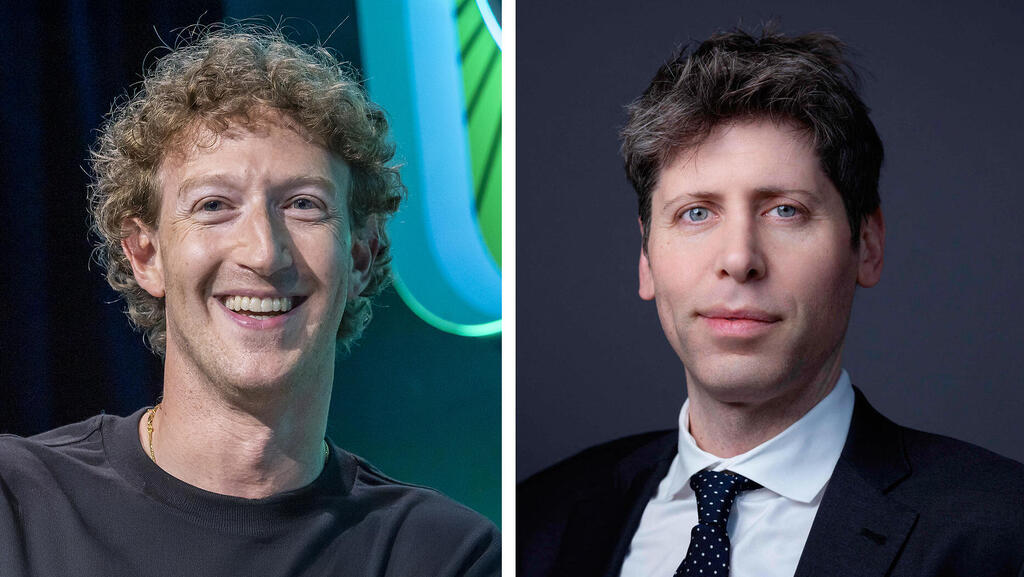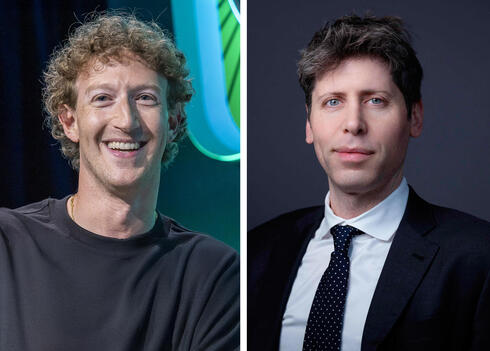
Why humans are the most valuable commodity in the AI talent arms race
Big Tech is pouring billions into a handful of engineers building the very systems that could replace them.
What is the most important resource in the artificial intelligence (AI) arms race, in which nearly all of the world’s leading technology companies are engaged?
Plenty of computing power is needed, of course. Vast amounts of data to train modern models are essential too, and companies are willing to pay handsomely for it. But in the race to develop AI that can potentially replace humans, the resource in highest demand right now is, ironically, people. Specifically, the handful of people at the very top of the AI talent pyramid. The best of the best are worth hundreds of millions, if not billions, of dollars.
Investing vast sums to secure top talent, especially in AI, is not new. In 2023, Google paid $3 billion for an agreement to use the technology of chatbot startup Character.AI, a deal that also brought back the company’s founders, Israeli Noam Shazeer and his partner Daniel De Freitas. But now, the hunger for human capital is intensifying. In recent weeks, we’ve seen the major AI players fight over the field’s biggest names. They may be unfamiliar to most people, but these individuals have become multimillionaires, even billionaires, in this boom, without an IPO or exit, and in many cases, without being founders but simply employees of an AI company.
The current recruitment frenzy arguably began in May, when OpenAI acquired the AI hardware startup io for $6.4 billion. The main goal wasn’t the startup’s technology, it has no product on the market and hasn’t even announced one, but rather the people behind it, especially the legendary Apple designer Jony Ive and the 55 employees he handpicked.
Last week, OpenAI added four more prominent figures to its roster: former Tesla VP of software engineering David Lau, respected AI engineers and researchers Uday Ruddarraju and Mike Dalton from xAI, and Angela Fan from Meta.
Meta is perhaps the most aggressive in this war for talent. In June, the company paid $14.3 billion for half of Scale AI. Again, the main target wasn’t the company’s product but its founder and CEO, Alexandr Wang (28), who joined Meta to lead a new AI lab. He also profited personally, Wong received 15% of Scale AI’s shares. The deal was partly driven by Meta’s struggles to hire top AI talent, despite rival offers of up to $300 million over four years for senior AI engineers at OpenAI, Anthropic, and Google. Meta’s bet: that recruiting Wang, well-connected and highly respected, plus offering record-breaking compensation packages would help lure top talent to a company widely seen as behind in AI. The gamble paid off. Meta hired 11 senior engineers from OpenAI, Anthropic, and Google, and announced the launch of Meta Superintelligence Labs (MSL), a new unit led by Wang to concentrate its AI efforts.
How powerful is Meta’s pull right now? Four days after the MSL announcement, Daniel Gross, founder and CEO of Ilya Sutskever’s startup Safe Superintelligence, stepped down to join Meta’s new AI team. Gross won’t even hold a senior title but will report to Wang. He left the helm of one of the hottest startups in the field, which raised $2 billion in April at a $32 billion valuation despite not having a product, for an employee role at a company with a checkered reputation. His salary package wasn’t disclosed, but it’s likely nine figures, possibly more.
Meta scored again when it recruited Ruoming Pang, one of Apple’s top AI researchers, who led the tech giant’s core models team. He reportedly secured a pay package worth tens of millions of dollars.
Over the weekend, Google struck back, signing a $2.4 billion deal with AI startup Windsurf. In exchange for a non-exclusive license to its technology, Windsurf’s founders Varun Mohan and Douglas Chen, plus some of their top team, will join Google’s DeepMind division. This was a major win for Google: just in May, OpenAI had been negotiating to acquire Windsurf, but the founders walked away over concerns about possible data sharing with Microsoft, one of OpenAI’s biggest investors.
OpenAI’s original offer for Windsurf was $3 billion. Google ended up paying $2.4 billion, mainly for the people. The startup’s technology, customer base, IP, and infrastructure accounted for only about $600 million of that value. Not insignificant, but not unique or irreplaceable either. The real value was in the founders and employees.
Related articles:
In the “resource triangle” that AI companies depend on, computing power, training data, and talent, it’s clear why human capital is now the top priority. Chips can be produced faster and cheaper, with new factories springing up and more powerful processors hitting the market regularly. Training data is scarce and its sources are limited, but it’s not exclusive. Reddit can license its data to OpenAI, Google, or any other buyer. The same data can be reused endlessly without losing value.
But people are different. The number of truly elite AI engineers, those with deep knowledge and proven experience in building cutting-edge models, is tiny, perhaps only a few hundred worldwide. Meanwhile, big tech’s demand for them is in the thousands, not to mention the countless startups fighting for the same brains.
Unlike data, this resource is exclusive. A superstar engineer who goes to Meta has left another company behind, and from that point on, only Meta can benefit from their expertise. Unlike chips, these employees can’t be mass-produced. It takes years of advanced education, practical experience, and usually high-stakes startup work to develop such skills, and even then, only a rare few reach the superstar level. Today, the pipeline for new top-tier talent is thin. The billions pouring in now will certainly attract new people to the field, but it will be years before they reach the elite level big companies crave.
Many companies believe, with good reason, that the battle for AI dominance will be decided before the next generation of talent comes of age. That’s why billions are being poured into securing a tiny pool of humans, people working to build systems that may one day make them, and everyone like them, obsolete. The AI talent war may well be the last great boom for the human mind.
